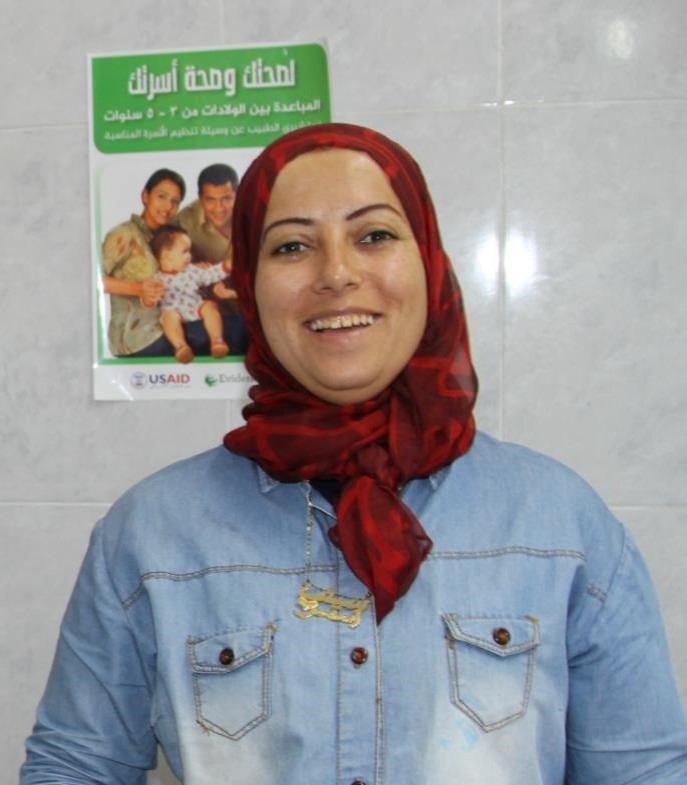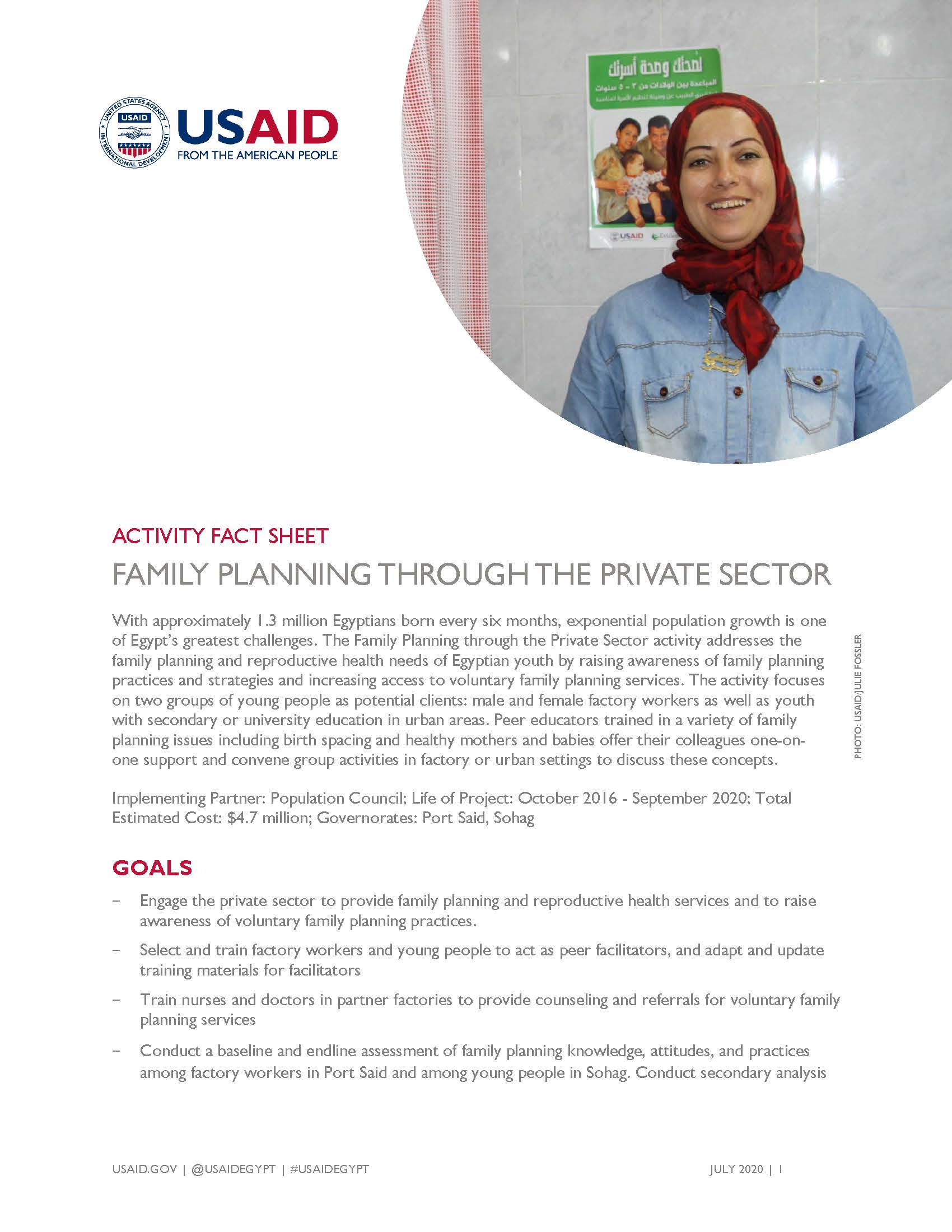Speeches Shim

With approximately 1.3 million Egyptians born every six months, exponential population growth is one of Egypt’s greatest challenges. The Family Planning through the Private Sector activity addresses the family planning and reproductive health needs of Egyptian youth by raising awareness of family planning practices and strategies and increasing access to voluntary family planning services. The activity focuses on two groups of young people as potential clients: male and female factory workers as well as youth with secondary or university education in urban areas. Peer educators trained in a variety of family planning issues including birth spacing and healthy mothers and babies offer their colleagues one-on-one support and convene group activities in factory or urban settings to discuss these concepts.
Implementing Partner: Population Council; Life of Project: October 2016 - September 2020; Total Estimated Cost: $4.7 million; Governorates: Port Said, Sohag
GOALS
- Engage the private sector to provide family planning and reproductive health services and to raise awareness of voluntary family planning practices.
- Select and train factory workers and young people to act as peer facilitators, and adapt and update training materials for facilitators
- Train nurses and doctors in partner factories to provide counseling and referrals for voluntary family planning services
- Conduct a baseline and endline assessment of family planning knowledge, attitudes, and practices among factory workers in Port Said and among young people in Sohag. Conduct secondary analysis of national survey data, including Survey of Young People in Egypt, to create a general family planning knowledge, awareness, attitudes, and practices profile of male and female youth
- Provide information on family planning and reproductive health in the context of COVID-19 pandemic. Compile a list of frequently asked questions and answers on COVID-19 prevention and integrated family planning and maternal health for use by doctors. Share this information with factory workers in Port Said and livelihood training workshop graduates in Sohag using WhatsApp networks. Post this information on Ma3looma website and respond to questions from visitors
- Conduct a phone survey with up to 240 young male and female project participants (married or unmarried) in Port Said and Sohag who receive WhatsApp messages on COVID-19 and related reproductive health topics to assess their knowledge, attitudes, and practices for COVID-19 prevention, and solicit their opinions on the use of social media channels for communicating health messages to young people
- Undertake a qualitative study to examine challenges married young women are facing in accessing family planning and reproductive health services as a result of COVID-19 pandemic
Results
- Trained 174 nurses, 534 pharmacists, and 161 physicians in Port Said and Sohag to provide voluntary family planning and reproductive health counseling and services
- 300 trained peer educators in Port Said provided 21,400 factory workers with reproductive health and family planning messages through face-to-face communication, social and behavioral change communication materials, and social media channels. In Sohag governorate, 60 trained peer educators conducted integrated family planning and livelihood training workshops for 4,663 young men and women
- Facilitated a partnership between Etisalat Foundation, one of the main telecommunications providers in Egypt, and Port Fouad local association to open a clinic for factory workers in Port Said Investment Zone. Etisalat funds the clinic and Port Fouad local association manages it
- Partnered with American Chamber of Commerce to present member businesses with financial benefits of providing workforce with voluntary family planning and reproductive health information and services



Comment
Make a general inquiry or suggest an improvement.